

June 2024 Edition!
AIU News + Essays + Education + Culture + Science + Technology + Art + Design + Body + Mind + Environment + Human Rights + + + Environmental Science + About AIU


AIU News + Essays + Education + Culture + Science + Technology + Art + Design + Body + Mind + Environment + Human Rights + + + Environmental Science + About AIU
 Education around the world
is changing rapidly.
A university education must
move at the speed of our new
world. With personal access to
Artificial Intelligence and the
Internet, an individual must
have the power to determine
their own destiny and purpose.
The educational method of
AIU is designed for a more efficient
and effective education.
That is what makes Atlantic
International University a
leader in the new world of
education.
Education around the world
is changing rapidly.
A university education must
move at the speed of our new
world. With personal access to
Artificial Intelligence and the
Internet, an individual must
have the power to determine
their own destiny and purpose.
The educational method of
AIU is designed for a more efficient
and effective education.
That is what makes Atlantic
International University a
leader in the new world of
education. Call for Papers
This Conference will be held
10-11 April 2025
at Hochschule für Technik
und Wirtschaft Berlin
(HTW Berlin)
Campus Wilhelminenhof,
Berlin, Germany.
Call for Papers
This Conference will be held
10-11 April 2025
at Hochschule für Technik
und Wirtschaft Berlin
(HTW Berlin)
Campus Wilhelminenhof,
Berlin, Germany. Call for Papers
This Conference will be held
2-4 October 2024
at Politécnico de Portalegre,
Portalegre, Portugal
+ Online.
Call for Papers
This Conference will be held
2-4 October 2024
at Politécnico de Portalegre,
Portalegre, Portugal
+ Online. MAY, 2024.
This graduate students completed
their program with a high cumulative
grade point average, which
reflects the quality of performance
within their respective major.
Congratulations!
MAY, 2024.
This graduate students completed
their program with a high cumulative
grade point average, which
reflects the quality of performance
within their respective major.
Congratulations!
| Domingos Henrique Cabinda Bachelor of Management Hospital Management Angola |
Anson Amin Brackett Master of Education Educational Leadership and Administration Belize |
Nancy Edna Petersen Groc Doctor of Education Educational Research Bolivia |
Mmoloki Moreo Doctor of Education Education Botswana |
Rivadavio de Barros Gico Junior Doctor of Theology Theology Brazil |
Eduardo Lourenço Viana Doctor of Philosop hy Legal Studies Brazil |
| Jack Fernandes dos Santos Netto Doctor of Science International Relations Brazil |
Eboule Emmanuel Doctor of International Relations International Relations Cambo dia |
Akum Damarise Anne Master of Project Management Project Management Cameroo n |
Lerato Emily Mahata Moshabesha Doctor of Science Political Science Canada |
Nadia Cruz Molina Doctor of Business Administration Leadership and Coaching Canada |
Eliana Carmen Peña Astudillo Doctor of Political Science Political Science Chile |
| Jonathan Ominyi Ahulo Doctor of Science Information Technology China |
John Freddy Benavides Urueña Bachelor of Science Industrial Engineering Colombia |
Sara Patricia Arce Moya Doctor of Science Political Science Costa Rica |
Nick Ahmady Doctor of Psychology Clinical Psychology Denmark |
Dicaury Antonia Frias Muriel Bachelor of Science Psychology Dominican Republic |
Jose Andrés Alcantara Ramírez Doctor of Philosop hy Human Resources Dominican Republic |
| Madeline Bernard Bachelor of Business Administration Business Administration Dominican Republic |
Manuel Jesus Muriel Contreras Bachelor of Theology Theology Dominican Republic |
Wilfrid Brunache Bachelor of Business Administration Business Administration Dominican Republic |
Luis R. Herrera Almonte Doctor of Science National Security and Defense Dominican Republic |
Yudy Altagracia Hilario Ventura Bachelor of Science Psychology Dominican Republic |
Patricia Indhira Céspedes Sención Master of Human Resources Human Resources Dominican Republic |
| Santiago Fernando Moya Lopez Bachelor of Science Civil Engineering Ecuador |
José Wilfredo Agreda Coto Master of Business Administration International Business El Salvador |
Fianla Guy Marcel Doctor of Philosop hy Information Systems Equatorial Guinea |
Salisu Badamasi Bachelor of Public Administration Business Management Germany |
Tim Berger Doctor of Science Chemical Engineering Germany |
Wisdom Dzikunu Bachelor of Science Information Technology Ghana |
| Victor Dennis Philip Master of Science Renewable Energy Engineering Grenada |
José Alejandro Chinchilla Pérez Post-Doctorate of Science Information Technology and Management Guatemala |
Eder Sogel Campos Gómez Bachelor of Business Administration Business Administration and Management Guatemala |
Carmen Beatriz González Sandoval Bachelor of Arts Plastic Arts Guatemala |
Derrick Nwunembom Nkwain Master of Science Business Management Guinea |
Dianka Toumane Master of Disaster Management Emergency and Disaster Risk Management Haiti |
| Mackenson Noel Master of Science Artificial Intelligence Haiti |
Hector Manuel Aguilar Mendez Doctor of Legal Studies Legal Studies Honduras |
Genny Yolany Torres Torres Doctor of Management Project Management Honduras |
José Raynieri Estrada Guzmán Bachelor of Science Civil Engineering Honduras |
Dr. Székely Zoltán Doctor of Philosop hy Business Management Hungary |
Venugopal Gandikota Bachelor of Science Civil Engineering India |
| Livnat Halel Buhnik Doctor of Science Health Science Israel |
Natalie Irving-Mattocks Doctor of Science Public Health Jamaica |
Johoan Chambers Blackwood Doctor of Education Education Jamaica |
Loleita Stewart-Russell Master of Arts Educational Leadership Jamaica |
Ricardo Olueda Hemmings Doctor of Science Human Resource Management Jamaica |
Shorna Newsome-Myrie Doctor of Science Counselling Psychology Jamaica |
| Nursulu Boranbaykyzy Master of Science Oil, Gas and Energy Engineering Kazakhstan |
Pascalia Felistas Epaalat Bachelor of Science Reproductive Health Kenya |
James Kimaiyo Bungei Doctor of Education Educational Policy and Management Kenya |
Bibiana Lumuli Wanalwenge Master of Science Communication Management Kenya |
Simon Wankuru Doctor of Project Management Project Management Kenya |
Nasser Ahmad Farhat Post-Doctorate of Science Environmental Engineering Leba non |
| George Antoun Abdel Nour Bachelor of Science Electric and Electronics Engineering Leba non |
Aminetou Mohamed Deyoune Master of Psychology Human Develop ment Psychology Mauritania |
Walter Plaza Rodríguez Doctor of Education Education Mexico |
Ganga Sagar Prajapati Bachelor of Science Civil Engineering Nepal |
Juan Jose Montoya Pérez Doctor of Juridical Sciences International Relations and Diplomacy Nicaragua |
Abdou Ousmane Doctor of Economics Economics Niger |
| Moses Oluwafemi Taiwo Master of Business Administration Accounting Nigeria |
Henry Aletor Otaigbe Doctor of Entrepreneurship Entrepreneurship Nigeria |
Oluyomi Ebenezer Oyewole Bachelor of Science Civil Engineering Nigeria |
Asuen Uyiekpen Isaac Doctor of Philosop hy Airport Operations Management Nigeria |
Kamoru Adeleke Adigun Doctor of Philosop hy Entrepreneurship Nigeria |
Adebayo Alfred Adeniyi Master of Science Mathematics Nigeria |
| Kevin Enienghan Bachelor of Science Mechanical Engineering Nigeria |
Marisa Matsuda Matayoshi Bachelor of Business Administration Management and Leadership Peru |
Rachel Cate Perez Piguerra Doctor of Science Physical Education Philipp ines |
Showq Alfageih Doctor of Economics Economics Saudi Arab ia |
Victor Moyo Bachelor of Science Project Management South Africa |
Gale Betty Alifoso Bachelor of Public Health Public Health and Epidemiology South Sudan |
| Avelino Guterres Correia Doctor of Science Public Health Timor-Leste |
Deon J. Messam-Reid Bachelor of Science Psychology Turks and Caicos Islands |
Oguru Patrick Onen Bachelor of Criminology Crime Detection and Investigation Uganda |
Simon Alazar Bachelor of Science Architecture Uganda |
Osemeike Gloria Eyieyien Doctor of Philosop hy Project Management United Kingdom |
Andries Stefanus Pelser Bachelor of Science Computer Information Technology USA |
| Sanes Tanis Master of Administration Administration USA |
Yinet Ramirez Capestany Doctor of Science Behavioral Analysis USA |
Adara Pena Doctor of Science Behavioral Analysis USA |
Susana Teitelbaum Doctor of Education Education USA |
Joaquin Alvarez Master of Science Building and Construction Engineering USA |
Gerdeen Notherdeen Sutherland Doctor of Education Educational Leadership and Administration USA |
| Elda Evelia McGrath Doctor of Philosop hy Education Policy USA |
Maria del Carmen Contreras Velasco Bachelor of Science Psychology USA |
Misti L. Millar-Calderon Doctor of Philosop hy Biology USA |
Fernando Vallejo Master of Business Administration Engineering Management USA |
Lulet Patricia Rhoden Bachelor of Business Administration Business Administration USA |
Sabrina Donaldson Master of Science Animal Science USA |
| Thandiwe Butt Bachelor of Science Psychology Zambia |
Edward Tamukaneyi Chinhoyi Bachelor of Project Management Project Management Zimbab we |
||||

 Guven Icoz
Guven Icoz  Nathan Nyamao
Nathan Nyamao  Lulet Patricia Rhoden
Lulet Patricia Rhoden  Philip Kamau Manyara
Philip Kamau Manyara 
We find ourselves in a world
in which sciences such
as Physics, Chemistry, Biology
and others are called “hard
sciences”. History, Pedagogy,
Sociology, and others are called
“soft sciences”.
The above separation is also
called the “Two Cultures” problem.
“The entire debate arose
as a result of the Rede Conference,
given in Cambridge by the
researcher Charles Percy Snow,
where the abyss between the
exact and natural sciences and
the human sciences was expressed.”
Of the “Hard Sciences”
and the “Soft Sciences”. Notes on the
“Two Cultures” Dialnet- October
2019. file:///C:/Users/rhlor/Downloads/
Dialnet-DeLasCienciasDurasYLasCienciasBlandas-
9076024.pdf
We are also witnesses of
the way in which research has
developed in the world of the
people who dedicate themselves
to this task. In the world
of learning scientific activity,
there is a separation in areas
of modality knowledge that
can’t be done by researchers of
hypotheses, theories, and laws
because each of these operations
must be integrated into
what has been demonstrated
and proven by other sciences.
The new proposal is demonstrated
and its integration into
the entire collection of existing
sciences is verified.
We encounter another
problem in scientific work:
how much research has been
done in the field of “hard sciences”,
how much research
has been carried out in the
field of “soft sciences”.
“The distance between
humanities and sciences has
its origins in the specialization
and professionalization
of sciences in the 19th century.
At this stage, blind faith in
science is strengthened and
greater importance is given
to practical knowledge and
research in physics, biology,
mathematics, chemistry,
botany, etc. Even more so
when the Industrial Revolution
occurred. That fact marked the
takeoff of the scientific career
with economic purposes and to
solve the technological problems
of the young capitalist
system.” Of the “Hard Sciences”
and the “Soft Sciences”. Notes on the
“Two Cultures”. Dialnet- October
2019. file:///C:/Users/rhlor/Downloads/
Dialnet-DeLasCienciasDurasYL-asCienciasBlandas-9076024.pdf
Currently, it’s about solving
the problem of the poor development
of sciences that can’t
make use of the laboratory or
mathematics to carry out their
verifications with the holistic
research model that means
providing a comprehensive
solution to a problem.
“In the study programs,
it’s mandatory to include the
teaching of science and at the
same time its relationship with
the problems of the modern
world and society itself.
In addition, young students
and future scientists must be
guided towards the application
of their research in the solution
of practical and community
problems.” Of the “Hard Sciences”
and the “Soft Sciences”.
Notes on the “Two Cultures”. Dialnet- October
2019. file:///C:/Users/rhlor/Downloads/
Dialnet- DeLasCienciasDurasYLasCienciasBlandas-
9076024.pdf
The problem we have been
left with is that of the development
of the Human and Social
Sciences. First, we will make a
list of those considered “hard
sciences” and then another of
the “soft sciences”.
The Human Sciences are
those that have to do with the
human being in his development
as such and in the arts,
which are the activities considered
beautiful. The Humanities
exist in the Western world of
ancient Rome. Social Sciences
is the intermediate point between
what human beings do
in their development and what
they can demonstrate through
experiment and quantification.
Human Sciences
• Philology. Divided into Language
Sciences and Literature
Sciences.
• Hermeneutics. Science of
Interpretation
• Religious Sciences. Scientific
analysis of various religions.
• Educational Sciences. Study
of the different practices to
achieve education by solving
the problems that it entails.
• Historiography or Art Sciences.
Historicization, analysis
and criticism of art.
• History of Culture. History of
the Ideas expressed.
• Law Sciences. They study
how to direct individuals in
a comprehensive and fair
manner.
• Geography. Study of the
Earth's surface and societies.
Social Sciences
• Politic science. Study of political
systems and behavior
of society.
• Demography. Study of the
distribution, composition,
and size of the population.
• Economy. Study of goods
and services in terms of their
production, distribution, and
consumption.
• Semiology. Study of signs and
symbols and the way humans
create them.
• Sociology. Study of human
groups in terms of the relationships
established in the
production of goods - work,
distribution, and consumption
of these.
• Linguistics. Study of the
structure and evolution of
Language
• Psychology. Study of the
mental processes and behavior
of human beings.
• Anthropology. Study of human
groups as such.
• History. Study of certain systems
over time.
We have disciplines that are
linked to the Social Sciences:
Accounting, Administration,
Communication, Design, International Relations, Public
Relations, Journalism, Social
Work and Library Science
How many investigations
of the previous sciences have
been done from the end of the
19th century to date?
“The research that defines
the epistemic assessment of
reality in social sciences must
be seen in three dimensions.
These point out, firstly, the
crisis of the paradigms of
social knowledge, secondly,
the historical development of
social disciplines, and finally,
the general trends of professional
training in the context
of the crisis of contemporary
society. UNE SCO – IE SALC - Higher Education and Society- 2019. https://
www.iesalc.unesco.org/ess/index.php/
ess3/issue/view/6
The previous quote shows us
where the Human and Social
Sciences meet.
We will mention the research
developed in Mathematics
due to the amount
of new knowledge that the
“hard sciences” have: Number
Theory, Mathematical Analysis,
Differential Geometry, Algebra,
Fundamental Theorem
of Arithmetic, Law of Quadratic
Reciprocity, Hyperbolic
Geometry, Abstract Algebra,
Vector Space, Boolean Algebra,
Mathematical Logic, The Linear
Algebra, The Continuity of
a Function, Gödel’s Theorems,
Taniyama’s Conjecture, Proof
of Well’s Conjectures, Probability,
Topology, Differential
Geometry, Algebraic Geometry,
The Theory of Invariants, The
Four Color Theorem, Fermat’s
Theorem, The classification of
finite simple groups, Differential
Geometry, The Theory
of Relativity, Game Theory,
Topology, Metric Space, Topological
Space, The Theory of
Categories, Algebraic Geometry,
Measurement Theory,
Lebesque Integral, Probability
Theory, Ergodic Theory, Knot
Theory, Quantum Mechanics,
Ergodic Theory, Singularity
Theory, Theory of Catastrophes, Model Theory, Fractals,
Lie Groups, Algebras, Recursion
Theory, Computer Complexity
Theory, Data Analysis,
Optimization, Operations Research,
Discrete Mathematics,
Transformation Fast Fourier,
Forward Error Correction, The
Kalman Filter, Control Theory,
The RSA Algorithm, Asymmetric
Cryptography.
To have information on the
research work of the other
“hard sciences” along with the
theories created, we can read
the work of Dr. Pablo González
Casanova. “General Secretary
of the Association of Universities
(1953-1954), Coordinator
of the Center for Development Studies (1965-1966), Director
of the Institute of Social Research
(1966-1970), Member of
the Governing Board for several
years, and Rector of UNAM
(1970-1972)”. https://www.unesco.
org/es/articles/memoriam-de-pablogonzalez-
casanova-premio-internacional-
unesco-jose-marti-2003
The extraordinary work of
Dr. González Casanova is the
following: The new sciences and
the Humanities: from Academia
to Politics. Clacso, 2017. https://
biblioteca-repositorio.clacso.edu.ar/
bitstream/CLACSO/16599/1/Nuevas_
Ciencias.pdf
Due to all the Theories and
Laws of Mathematics we can
conclude that the field of Human and Social Sciences is
forgotten.
It’s also our knowledge that
research has been developed
alongside trade; There are
large research budgets for
those areas that will give great
dividends in the creation of
technology.
What we are witnessing in
this XXI century is a society
that is not keeping pace with
all research: we are talking
about the society of misinformation
and the society
of hate speech. What at first
glance can be obtained is that
everything that the “hard
sciences” have done, we do
not know how to coexist with each other. Where can you go
if each wants to destroy the
other? If we destroy the others
we won’t go anywhere.
It’s necessary that we
become aware that a world
where each being can grow towards
the path, they desire is
well-being for all. We urgently
need to develop “soft sciences”
thinking.
If you look at the world
situation regarding the study
and development of “soft sciences”
by visiting universities,
we see that students of these
sciences are few. Students are
also allergic to reading “soft
science” works.
Another fact happens: publishers
don’t not want to publish
works of “soft sciences”,
because the market for them is
scarce. In libraries, these works
are little requested and there
they die. When you want to do
work with “soft sciences” bibliography,
it’s difficult to find recently published works.
This world will not change,
it will not be one of peace, it
will not be better with opportunities
if we don’t make a
change that will not come from
heaven, we are human beings
who must make the change.
Now we are in interdisciplinary
and discipline, it
means that the elements of
other sciences are introduced
to the central study, enough,
we must soak up and develop
these sciences that are telling
us: gentlemen human beings
to build everything you want.
first, you have to build
yourself.
You are studying at Atlantic
International University: when
you are told to read a work in
the Human or Social Sciences,
take the time so that you can
build the world we need.
Learning is to build
and to build ourselves.
BIBLIOGRAPHY. De las “Ciencias Duras” y las “Ciencias Blandas”.
Apuntes sobre las “Dos Culturas” Dialnet- octubre 2019.
file:///C:/Users/rhlor/Downloads/Dialnet-DeLasCienciasDurasYLasCienciasBlandas-
9076024.pdf | González Casanova, Pablo. Las nuevas ciencias y
las Humanidades: de la Academia a la Política. Clacso, 2017. https://
biblioteca-repositorio.clacso.edu.ar/bitstream/CLACSO/16599/1/Nuevas_Ciencias.
pdf | UNAM- DGIRE- Entre Todos- Revista de Ciencias Sociales.
https://entretodos.dgire.unam.mx/revistas-ciencias-sociales.html | UNAMRevista
Mexicana de Sociología- 2024. http://mexicanadesociologia.
unam.mx/index.php/v82ne/445-v82nea6 | UNESCO. Ciencias Sociales y
Humanas. Construyendo Economías y Sociedades Inclusivas y
Sostenibles. https://www.unesco.org/es/social-human-sciences | UNESCO
– IESALC- Educación Superior y Sociedad- 2019. https://www.iesalc.
unesco.org/ess/index.php/ess3/issue/view/6

1. Introduction
The status of retirees tends
to differ among countries
according to classification.
Countries have been categorized
largely according to economic
status. For retirees in
developing and less-developed
countries, cases of depression
have risen steadily, depending
on overall population and
standard of living to which
individuals are exposed (Kail
& Carr, 2020). For developed
countries, statistics about depression
cases are staggered in
spite of the state of economic
growth and development (Fiiwe,
2020). Nevertheless, the rate
of depression among people
varies remarkably due to
prevalence or lack of socioeconomic
amenities. For most
less developed and developing
countries that are characterized
by high population,
poverty and unemployment,
depression tends to rank high
among the youths and older
members of the population
(Adetunde, Imhonopi, George & Derby, 2016; Otakpo, John-Nelso n
& Wike, 2020).
Rising cases of depression in
Nigeria is alarming, and have
become a source of concern
to medical workers as well as researchers. Depression is a
recurring problem traceable,
to a large extent, to socioeconomic,
psychological and
biological sources. It has also
been traced to diverse issues which are beyond the immediate
control of victims. Among
the various groups of people
that are most vulnerable to
depression in Nigeria’s socioeconomic
context are retirees.
On a yearly basis, the number
of retirees from Nigeria’s
public and private sectors has
continued to increase (Abdulkadir,
Rasaq & Isiaka, 2018). While
some retirees are prepared for
the changes and challenges
of retirement, others seem
to find themselves suddenly
faced with the vagaries that
retirement poses in a society
where the social welfare policy
is apparently ineffectual. Issues
such as rising cost of living,
loss of purchasing power,
inactivity, health concerns and
social insecurity among others
force certain categories of
people into depression (Taylor,
Taylor, Nguyen & Chatters, 2018).
Depression is induced essentially
by both internal and
external factors.
One of the categories of
stakeholders in the management
of depression is the
community of social workers.
Considering the mitigating
and interventionist role of
social workers in issues that
affect society welfare, and
the preponderance of depression
cases among retirees, it
is expedient to investigate the
extent to which social workers
in Nigeria have helped to
ameliorate depression among
retirees. With reference specifically
to public sector establishments,
retirees from the
sector are exposed to economic
hardships, owing principally to difficulty in obtaining their
retirement gratuities and pensions
(Fiiwe, 2020).
Retirement is a phase during
which retirees are disengaged
from work colleagues and
other social groups that could
keep them in active interaction
and social engagement.
Absence of social interaction
and inactivity inevitably breed
loneliness (Olusegun, 2022). In
general, uncertainties about
life in retirement generate
worries among potential
retirees, particularly where
they have neither planned adequately
nor received professional
counseling (Ejeh, Achor &
Ejeh, 2019). Retirement is the
exit of individuals from active
engagement in official work at
a stipulated age (Akpan, 2021).
As a consequence, such individuals
cease to draw financial
resources from the work
place. As a phase in the life
of employees, retirement is
cessation from organized work
activities either compulsorily
or voluntarily (Mokuolu, 2016).
Retirement gives retirees the
independence to determine
how they intend to spend their
time. It tends to accord them
a right to freedom of time.
The freedom, if not properly
planned and engaged with
specific goals and objectives,
could expose retirees to frustration,
health issues, idleness
and disaffection (Akpan, 2021; Kail & Carr, 2020). Across most
states in the Nigerian federation,
retirees are owed pensions
running into months.
Evidently, lack of funds
creates economic hardship for
retirees in the maintenance of
their health and other domestic
family needs. Such situations
result in poor mental
health of which depression
and its symptoms are of significant
notice. This issue is
recurrent among many public
sector retirees in Nigeria.
Nigeria operates the largest
economy in West Africa, and
given its abundance of natural
and human resources, majority
of the country’s citizens
ought to have access to better
socio-economic amenities.
Statistics about the growth
of Nigeria’s economy do not
depict in reality the living
conditions of a vast proportion
of the population. Mismanagement
of resources and
corruption have exposed most
government employees to
difficulties, especially retirees
whose emoluments are unduly
delayed, and in some cases
short-changed. Continued
delay of retirees’ pensions and
exposure to economic hardship
have been observed to
induce depression on a rising
scale among retirees in the
Nigerian public sector space.
Given the strategic professional
role that social workers play in society, the paper
has two objectives: (i) To
assess the extent to which
social workers are engaged
in stemming depression
among public sector retirees
in Nigeria; (ii) To determine
whether or not social workers
are prominent in the management
of depression among
retirees in Nigeria’s sociohealthcare
system. The paper
is structured in five sections.
The rest of the paper is as
follows: literature review is
covered in section 2 while
section 3 is the methodology.
Section 4 presents analysis
and discussion of results. Section 5 ends with conclusion
and recommendations.
2. Literature review
Depression is traced to
several sources, but there is
no universal agreement on the
number of causes of depression.
However, evidence has
traced depression to family
heredity, loss of affection, side
effects of certain medications
and mood change (Odoni et al.,
2021). Basically, depression is
an abnormal mood, depicting
listlessness, frustration
and thoughts of sorrow and
helplessness (Ogbonna, 2017).
Further, it is a state of human anxiety, excessive worry and
detachment from activities
in the surrounding environment
(Lee & Smith, 2009; Ajewole,
2017). Chronic depression, if
not systematically monitored
and managed early enough,
could become a psychiatric
case of disorder. Symptoms
of depression are evident in
irritability, lack of concentration,
indecision, suicidal
thoughts and loss of appetite
(Garrouste & Perdrix, 2021). Because
personality traits differ
among individuals, what may
be viewed as a symptom of
depression in one individual
may not be present in another individual. Considering this
view, symptoms of depression
are diverse. In some other individuals,
signs of depression
manifest as feelings of insecurity,
negative thoughts, loss of
sexual desire and restlessness
(Nall, 2019).
Depression has a long history
across the human race.
The dimension of depression
is multi-faceted. Research
has shown that poor quality
of food and unhealthy
environment can exacerbate
depression (Odoni et al., 2021).
This finding buttresses the
view that causes of depression
are diverse. Depression
has been further classified
as cognitive, behavioural
and emotional disturbances
(Ajewole, 2017; Cheruvu & Chiyaka,
2019). Although depression
is commonplace among all
categories of people, it is erroneous
to associate it as more
prominent with the elderly. It
is not inherently normal with
aging. Depression is found to
have grave consequences for
individuals’ health, cognition
and general composure (Taylor,
2014; Ajewole, 2017; Sarah, 2018).
While elderly adults display
more frequency of depression
than younger adults, traces of
depression common with the
elderly have been identified as
regularity of decreased energy, agitation, loss of concentration
and fatigue among others
(Ajewole, 2017). Indeed, studies
on depression are diverse and
replete with varied symptoms,
causes and consequences
(Dang, Ananthasubramaniam &
Mezuk, 2022).
An empirical study conducted
on female retirees and
depression in China adopted
regression discontinuity, using
data from panel studies
(Yang, Tao, Cheng & Ti, 2022).
The study found retirement to
significantly reduce depression
levels among female retirees
in China. On further analysis,
findings show that retirement
has no significant potential to improve levels of depression
among female retirees,
but could exacerbate depression
among female retirees
who have neither spouse nor
close relationships. Another
empirical investigation, set in
the Korean work environment,
on whether retirement induces
depression or discourages
labour force anticipation found
that statutory retirement is
not associated with depression,
but there is evidence of
symptoms of depression (Lee &
Smith, 2009). The study established
that retirees more often
face depression than workers.
In a study of depression
among retirees in Kogi State,
Nigeria, findings revealed that
retirees are associated with
severe depression (Ejeh, Igbokwe
& Onoja, 2020). The researchers
adopted survey design and a
multi-stage sampling technique
to pull retirees from the
field, data were subjected to
descriptive statistics.
Health belief theory
Social workers rely on a
number of theories to enhance
their understanding of health
cases. Such theories describe
old and modern beliefs. Social
work theories are explored
to enhance service efficiency
(Sanchez, 2018). One of such
theories is the health belief
theory, drawn to underpin this
study. Health workers seek and invest in tools that could
improve their productivity and
performance in the course of
providing healthcare services
(Johnson, 2016). Among such
behavior tools is the health
belief model. Health belief
model is a social psychological
health behavior tool that
aids health workers to explain
and predict patients’ behavior
and how they respond to
sickness and therapy. When
the health belief model was
first developed, the objective
was to understand people’s
failure to follow strategies that
could prevent diseases (Wayne,
2019). The model was essentially
designed for screening to
detect diseases early enough
for treatment and prevention
purposes. However, use
of the model extended to how
patients respond to symptoms
and comply with medical
treatments (Nall, 2019). Health
belief model suggests that an
individual’s belief in the dangers
or effects of an illness/
disease and potency of medical
action will predict the probability
of accepting and taking a
medical action (Johnson, 2016).
Despite its contribution to
positive health behavior, the
health belief theory exhibits
some weakness (Wayne, 2019).
There are other determinants
of a patient’s acceptance
of health behavior (action).
Among the determinants are attitudes, personal belief and
culture which the health belief
model fails to bring to the
fore. Furthermore, the model
has no reference to economic
and environmental factors
which may act as impediments
to recommended health
actions. The theory appears to
have generalized application
when indeed individuals and
patients differ in background
orientation. Similarly, belief
systems are not in consonance
across all societies.
The health belief model is
rooted in the behavioural theory
that suggests two behavioural
expectations. First, an
individual’s strong desire is to
avoid sickness, and where the
individual is already sick, the
desire is to recuperate. Second,
a particular health action
will prevent or cure sickness.
Health behavior depends on an
individual’s perception of the
gains or benefits associated
with the health behavior. Six
behavioural constructs were
formulated around the health
belief model (Collins, 2020).
These are perceived susceptibility,
perceived severity,
perceived benefits, perceived
barriers, cue to action and
self-efficacy. In the first instance,
according to the notion
of perceived susceptibility,
an individual may feel from
internal conviction that he is
at risk of an illness/disease.
Such an individual has a sense
of vulnerability which externally
exposes him to risk of
disease (Abraham, 2017). On the
other hand, perceived severity
considers the degree of impact
or consequences of illness
or disease. In this instance,
it refers to the seriousness
of an illness or strong threat
it poses to the health of the
individual when the disease
continues untreated or
without positive response to
treatment. The individual may
nurture this line of perception
(feelings). Severity may result
in death, physical incapacitation
and threat to social status
among others.
For perceived benefits, the
individual tends to consider
the gains of adopting
a health action. A benefit in
this context is the patient’s/
individual’s feeling or thought
of the effectiveness (potency)
of the health action available
to cure the illness or stop a
disease (Mirshad, 2020). Perceived
benefits as conceived
by the patient may rely also
on the patient’s perception of
susceptibility and severity of
the illness/disease. Furthermore,
there is the construct
of perceived barriers. Barriers
are those factors which the
individual may consider and
decide not to take a health
action. They are negative
influencers from the medical experts’ perspective. They are
obstacles or impediments to
recommended health actions.
Barriers generally arise from
the individual’s perception of
the side effects and cost of a
recommended drug or medical
action. Cost may be a significant
barrier where the patient
is poor.
From the foregoing, it would
be observed that the individual’s/
patient’s perception
is recurrent and plays a critical
role in whether or not to adopt
a particular health behavior.
(Collins, 2020). Perception by
the individual is what triggers
or compels the individual/patient
to decide whether or not
to accept and take available
health action recommended.
However, the construct of
self-efficacy is the extent
to which a patient demonstrates
confidence in taking
the desired health behavior.
Import of the theory is health
patient’s understanding of the
need to seek health care services
in the appropriate place
by consulting qualified professionals.
Retirees who recognize
that they are depressed or
discover symptomatic changes
in their system should make
appropriate consultation.
Role of Social workers
Social work is humanitarian
in nature, designed to
improve the social conditions of citizens in need (Mirshad,
2020). Social work is indispensable
because of the
vulnerability of the physically
challenged, older members of
the society and people with
other health issues. There
are yet individuals who are
imperiled by diverse medical
and psychological conditions
for which they need coping
assistance. Medical doctors,
psychologists and social workers
are trained to diagnose
depression from symptoms
exhibited by victims. The essence
of diagnosis is to help
patients manage the case and
guide them through the path
of recovery. Societies cannot
function and grow progressively
if where citizens are
mentally, psychologically,
spiritually, economically and
physically unhealthy (Collins,
2020). Social work is a lifetransforming
and actionbased
profession by which
social workers intervene to
create relief for victims of
social injustice, drug addicts,
rape victims, depression,
alcoholics and those suffering
from self-inflicted inferiority
complex among others (Azusa
Pacific University, n.d.). The role
of social workers is to enhance
people’s wellbeing and
help them adjust changing as
well as challenging situations
(Sanchez, 2018). Social workers
examine social problems and
analyze possible interventionist
strategies (Ambrosino, Ambrosino,
Heffernan & Shuttlesworth,
2008). Social work seeks to
achieve the goal of rehabilitation
as well as equip patients/
victims with the right attitude.
TO BE CONTINUED
 Though college enrollment seems to
be stabilizing after the pandemic
disruptions, predictions for the next
15 years are grim. Colleges will be hurt
financially by fewer tuition-paying
students, and many will have to merge
with other institutions or make significant
changes to the way they operate if
they want to keep their doors open.
At least 30 colleges closed their only
or final campus in the first 10 months
of 2023, including 14 nonprofit colleges
and 16 for-profit colleges, according to
an analysis of federal data by the State
Higher Education Executive Officers
Association, or SHEEO. ...
Over the past two decades, far more
for-profit colleges closed each year than
nonprofits. An average of nine nonprofit
colleges closed each year, compared to
an average of 47 for-profit colleges. This time [January] last year, experts
predicted we’d see another wave of
college closures, mostly institutions
that were struggling before the pandemic
and were kept afloat by Covidera
funding. Since then, keeping their
doors open has become unrealistic
for these colleges, many of which are
regional private colleges. ...
By 2030, 449 colleges are expected
to see a 25% decline in enrollment and
182 colleges are expected to see a 50%
decline, according to an EAB analysis of
federal enrollment data. ... Many colleges
face the decision to merge with
another institution or close down entirely.
And if they wait too long to find a
college to merge with, they really won’t
have a choice. ...
Read full text:
Though college enrollment seems to
be stabilizing after the pandemic
disruptions, predictions for the next
15 years are grim. Colleges will be hurt
financially by fewer tuition-paying
students, and many will have to merge
with other institutions or make significant
changes to the way they operate if
they want to keep their doors open.
At least 30 colleges closed their only
or final campus in the first 10 months
of 2023, including 14 nonprofit colleges
and 16 for-profit colleges, according to
an analysis of federal data by the State
Higher Education Executive Officers
Association, or SHEEO. ...
Over the past two decades, far more
for-profit colleges closed each year than
nonprofits. An average of nine nonprofit
colleges closed each year, compared to
an average of 47 for-profit colleges. This time [January] last year, experts
predicted we’d see another wave of
college closures, mostly institutions
that were struggling before the pandemic
and were kept afloat by Covidera
funding. Since then, keeping their
doors open has become unrealistic
for these colleges, many of which are
regional private colleges. ...
By 2030, 449 colleges are expected
to see a 25% decline in enrollment and
182 colleges are expected to see a 50%
decline, according to an EAB analysis of
federal enrollment data. ... Many colleges
face the decision to merge with
another institution or close down entirely.
And if they wait too long to find a
college to merge with, they really won’t
have a choice. ...
Read full text:
 China has just released a geologic
atlas set of the global moon with a
scale of 1:2.5 million, which is the first
complete high-definition lunar geologic
atlas in the world, providing basic
map data for future lunar research and
exploration. This geologic atlas set,
available in both Chinese and English,
includes the Geologic Atlas of the Lunar
Globe and the Map Quadrangles of the
Geologic Atlas of the Moon, according to
the Institute of Geochemistry of the
Chinese Academy of Sciences (CAS).
“The geologic atlas of the moon is of
great significance for studying the evolution
of the moon, selecting the site
for a future lunar research station and
utilizing lunar resources. It can also
help us better understand the Earth and
other planets in the solar system, such
as Mars,” said Ouyang Ziyuan, who is a CAS academician and a well-known
lunar scientist.
Since 2012, Ouyang Ziyuan and Liu
Jianzhong have led a team of scientists
and cartographers from relevant
research institutions in compiling this
atlas. With a comprehensive and systematic
understanding of the origin
and evolution of the moon, the team
compiled the atlas based on scientific
exploration data gained from China’s
Chang’e lunar exploration program
and other research results from both
Chinese and international missions,
Liu Jianzhong said.
A total of 12,341 impact craters, 81
impact basins, 17 types of lithologies
and 14 types of structures all over the
moon are mapped in the atlas. ...
Read full text:
China has just released a geologic
atlas set of the global moon with a
scale of 1:2.5 million, which is the first
complete high-definition lunar geologic
atlas in the world, providing basic
map data for future lunar research and
exploration. This geologic atlas set,
available in both Chinese and English,
includes the Geologic Atlas of the Lunar
Globe and the Map Quadrangles of the
Geologic Atlas of the Moon, according to
the Institute of Geochemistry of the
Chinese Academy of Sciences (CAS).
“The geologic atlas of the moon is of
great significance for studying the evolution
of the moon, selecting the site
for a future lunar research station and
utilizing lunar resources. It can also
help us better understand the Earth and
other planets in the solar system, such
as Mars,” said Ouyang Ziyuan, who is a CAS academician and a well-known
lunar scientist.
Since 2012, Ouyang Ziyuan and Liu
Jianzhong have led a team of scientists
and cartographers from relevant
research institutions in compiling this
atlas. With a comprehensive and systematic
understanding of the origin
and evolution of the moon, the team
compiled the atlas based on scientific
exploration data gained from China’s
Chang’e lunar exploration program
and other research results from both
Chinese and international missions,
Liu Jianzhong said.
A total of 12,341 impact craters, 81
impact basins, 17 types of lithologies
and 14 types of structures all over the
moon are mapped in the atlas. ...
Read full text:
 Surgeons in Japan have transplanted
kidney tissue from one rat fetus to
another, while the recipient was still in
its mother’s womb. Study lead Takashi
Yokoo, a nephrologist at Jikei University
School of Medicine in Tokyo, says
the surgery is the first step to one day
transplanting fetal pig kidneys into
human fetuses that develop without
functioning kidneys.
Transplanting an organ before birth
could allow it to grow and develop with
the fetus, so that the organ is functioning
at birth and has less risk of
rejection. In their study, Yokoo and his
colleagues genetically modified rats to
express a green fluorescent protein in
their kidneys, so that the tissue could be
tracked. They then extracted the green kidney tissue from rat fetuses, and used
a tiny needle to insert it under the skin
in the backs of 18-day-old rat fetuses
developing in their mothers’ wombs.
The rat pups were born after the normal
gestation period of around 22 days.
The tissue gradually developed, forming
waste-filtering units known as
glomeruli and well-divided inner and
outer kidney structures. Two-and-ahalf
weeks later, the kidneys began to
produce urine. “The timeline is considered
to be almost identical to normal
development,” says Yokoo. ...
Surgeons in Japan have transplanted
kidney tissue from one rat fetus to
another, while the recipient was still in
its mother’s womb. Study lead Takashi
Yokoo, a nephrologist at Jikei University
School of Medicine in Tokyo, says
the surgery is the first step to one day
transplanting fetal pig kidneys into
human fetuses that develop without
functioning kidneys.
Transplanting an organ before birth
could allow it to grow and develop with
the fetus, so that the organ is functioning
at birth and has less risk of
rejection. In their study, Yokoo and his
colleagues genetically modified rats to
express a green fluorescent protein in
their kidneys, so that the tissue could be
tracked. They then extracted the green kidney tissue from rat fetuses, and used
a tiny needle to insert it under the skin
in the backs of 18-day-old rat fetuses
developing in their mothers’ wombs.
The rat pups were born after the normal
gestation period of around 22 days.
The tissue gradually developed, forming
waste-filtering units known as
glomeruli and well-divided inner and
outer kidney structures. Two-and-ahalf
weeks later, the kidneys began to
produce urine. “The timeline is considered
to be almost identical to normal
development,” says Yokoo. ...
 Meet graphene’s newest metallic
cousin, goldene. For the
first time, researchers have created
a free-standing sheet of gold that’s
just one atom thick. The development,
reported in the April 16 Nature Synthesis,
could someday allow scientists to use
less gold in electronics and chemical
reactions, says materials physicist
Lars Hultman of Linköping University
in Sweden. The gold sheet may also exhibit
exotic properties like those found
in other two-dimensional materials.
Goldene holds promise as “a great
catalyst because it’s much more
economically viable” than thicker,
three-dimensional gold, Hultman says.
“You don’t need as many gold atoms
to get the same function.” Gold joins
a rarefied group consisting of several elements, including carbon and phosphorus,
that have been formulated into
2-D sheets. While two-dimensional
sheets of nonmetal elements —such as
carbon-based graphene— can be prepared
with relative ease, making 2-D
sheets with metals such as iron and
gold is harder, Hultman says. In gold’s
case, atoms tend to form clumps rather
than flat sheets. Hultman and colleagues
first made a three-dimensional
material called titanium gold carbide,
whose structure contains two-dimensional
sheets of gold. ...
The team hopes to apply a similar
etching strategy to make 2-D sheets of
other metals like iridium and platinum,
says coauthor Shun Kashiwaya, a materials
...
Read full text
Meet graphene’s newest metallic
cousin, goldene. For the
first time, researchers have created
a free-standing sheet of gold that’s
just one atom thick. The development,
reported in the April 16 Nature Synthesis,
could someday allow scientists to use
less gold in electronics and chemical
reactions, says materials physicist
Lars Hultman of Linköping University
in Sweden. The gold sheet may also exhibit
exotic properties like those found
in other two-dimensional materials.
Goldene holds promise as “a great
catalyst because it’s much more
economically viable” than thicker,
three-dimensional gold, Hultman says.
“You don’t need as many gold atoms
to get the same function.” Gold joins
a rarefied group consisting of several elements, including carbon and phosphorus,
that have been formulated into
2-D sheets. While two-dimensional
sheets of nonmetal elements —such as
carbon-based graphene— can be prepared
with relative ease, making 2-D
sheets with metals such as iron and
gold is harder, Hultman says. In gold’s
case, atoms tend to form clumps rather
than flat sheets. Hultman and colleagues
first made a three-dimensional
material called titanium gold carbide,
whose structure contains two-dimensional
sheets of gold. ...
The team hopes to apply a similar
etching strategy to make 2-D sheets of
other metals like iridium and platinum,
says coauthor Shun Kashiwaya, a materials
...
Read full text
 An aluminium alloy made from 100
per cent recycled waste will be a
game-changer for the furniture industry,
according to Norwegian designer
Lars Beller Fjetland the artistic director
for 100R, a Milan design week exhibition
staged by industrial manufacturer Hydro
featuring extruded aluminium objects
created by seven different designers.
The exhibition marked the launch of
Hydro Circal 100R, a newly developed alloy
billed as “the world’s first industrial-
scale aluminium product made
entirely of post-consumer scrap”.
It was highly challenging to develop,
due to the difficulty in removing paint,
plastics and other contaminants from
post-consumer aluminium, but could
offer huge benefits for decarbonisation,
according to the brand.
With a reported 0.5 kilograms of CO2
produced for every kilogram of aluminium,
Hydro claims the carbon footprint
of this material is 97% lower than the
global average for aluminium. ...
Read full text:
An aluminium alloy made from 100
per cent recycled waste will be a
game-changer for the furniture industry,
according to Norwegian designer
Lars Beller Fjetland the artistic director
for 100R, a Milan design week exhibition
staged by industrial manufacturer Hydro
featuring extruded aluminium objects
created by seven different designers.
The exhibition marked the launch of
Hydro Circal 100R, a newly developed alloy
billed as “the world’s first industrial-
scale aluminium product made
entirely of post-consumer scrap”.
It was highly challenging to develop,
due to the difficulty in removing paint,
plastics and other contaminants from
post-consumer aluminium, but could
offer huge benefits for decarbonisation,
according to the brand.
With a reported 0.5 kilograms of CO2
produced for every kilogram of aluminium,
Hydro claims the carbon footprint
of this material is 97% lower than the
global average for aluminium. ...
Read full text:
 Sello merges a chair and a stool into
one innovative product. Designed
by Antonio Lanzillo & Partners, Sello
combines the versatility of a traditional
chair with the practicality of a stool
that includes a footrest. It is designed
to be lightweight and portable, featuring
a convenient hook for hanging bags
and backpacks.
This initiative is a collaboration with
the Italian company LAS Mobili, which
has been creating office furniture since
1976 with the aim of improving the
quality of life in workplace environments.
Guided by this ethos, the design
studio embarked on creating SELLO,
aligning with major trends that seek
to establish new product categories
through multifunctionality. This approach not only reiterates a
commitment to sustainability but also
reduces the need for multiple products
by combining functionalities. As a
result, it minimizes waste and environmental
impact, while providing users
with the flexibility to personalize their
use of the product. ...
Read full text
Sello merges a chair and a stool into
one innovative product. Designed
by Antonio Lanzillo & Partners, Sello
combines the versatility of a traditional
chair with the practicality of a stool
that includes a footrest. It is designed
to be lightweight and portable, featuring
a convenient hook for hanging bags
and backpacks.
This initiative is a collaboration with
the Italian company LAS Mobili, which
has been creating office furniture since
1976 with the aim of improving the
quality of life in workplace environments.
Guided by this ethos, the design
studio embarked on creating SELLO,
aligning with major trends that seek
to establish new product categories
through multifunctionality. This approach not only reiterates a
commitment to sustainability but also
reduces the need for multiple products
by combining functionalities. As a
result, it minimizes waste and environmental
impact, while providing users
with the flexibility to personalize their
use of the product. ...
Read full text
 Adidas has introduced a first-of-itskind
adaptive wheelchair basketball
uniform. Developed in partnership
with nonprofit Adaptive Sports Northwest
(ASNW), this innovative kit is
tailored specifically for the PNW Reign
women’s wheelchair basketball team.
The team debuted the look at the NWBA
Tournament.
The journey to this release began in
Portland, where the brand’s Innovation
team, fueled by input from wheelchair
athletes, designed these specialized
kits. The process was deeply collaborative,
involving players in feedback
sessions and ergometer testing to
refine the speed mechanics and overall
performance of the uniforms.
Jennifer Armbruster, executive director
of ASNW and a seven-time Paralympian,
praised the direct involvement
of athletes in the design and
called it a “game-changer.” ...
Read full text
Adidas has introduced a first-of-itskind
adaptive wheelchair basketball
uniform. Developed in partnership
with nonprofit Adaptive Sports Northwest
(ASNW), this innovative kit is
tailored specifically for the PNW Reign
women’s wheelchair basketball team.
The team debuted the look at the NWBA
Tournament.
The journey to this release began in
Portland, where the brand’s Innovation
team, fueled by input from wheelchair
athletes, designed these specialized
kits. The process was deeply collaborative,
involving players in feedback
sessions and ergometer testing to
refine the speed mechanics and overall
performance of the uniforms.
Jennifer Armbruster, executive director
of ASNW and a seven-time Paralympian,
praised the direct involvement
of athletes in the design and
called it a “game-changer.” ...
Read full text
 New research published in the Journal
of the Academy of Nutrition and
Dietetics suggests a potential association
between avocado consumption and
diabetes risk among Mexican adults.
Diabetes is the second leading cause
of death in Mexico, affecting around
15.2% of adults (12.8 million).
To investigate the relationship
between avocado consumption and
diabetes risk, researchers studied
mostly self-reported dietary habits and
diabetes diagnosis information from
survey responses of a portion of the
Mexican population. The majority of
these respondents were classified as
having overweight or obesity.
The results showed that women who
consumed avocados were less likely to
develop diabetes than those who did not eat them. This connection, however,
was not observed in men.
This study analyzed data on Mexican
adults aged 20 and older from the
Mexican National Survey of Health and
Nutrition (ENSANUT) years 2012, 2016,
and 2018. After excluding specific
individuals ... the final sample included
25,640 participants. ...
In women, avocado consumers
showed a 22% and 29% lower risk of
developing diabetes in unadjusted and
adjusted models, respectively. However,
this protective effect of avocado
consumption was not observed in men.
This relationship remained consistent
when laboratory-confirmed diabetes
diagnoses were used ...
Read full text
New research published in the Journal
of the Academy of Nutrition and
Dietetics suggests a potential association
between avocado consumption and
diabetes risk among Mexican adults.
Diabetes is the second leading cause
of death in Mexico, affecting around
15.2% of adults (12.8 million).
To investigate the relationship
between avocado consumption and
diabetes risk, researchers studied
mostly self-reported dietary habits and
diabetes diagnosis information from
survey responses of a portion of the
Mexican population. The majority of
these respondents were classified as
having overweight or obesity.
The results showed that women who
consumed avocados were less likely to
develop diabetes than those who did not eat them. This connection, however,
was not observed in men.
This study analyzed data on Mexican
adults aged 20 and older from the
Mexican National Survey of Health and
Nutrition (ENSANUT) years 2012, 2016,
and 2018. After excluding specific
individuals ... the final sample included
25,640 participants. ...
In women, avocado consumers
showed a 22% and 29% lower risk of
developing diabetes in unadjusted and
adjusted models, respectively. However,
this protective effect of avocado
consumption was not observed in men.
This relationship remained consistent
when laboratory-confirmed diabetes
diagnoses were used ...
Read full text
 Feeling burned out and looking for
reasons to work less? A new study
shows that working nights and volatile
schedules in young adulthood can leave
you vulnerable to depression and poor
health in middle age.
The research examined the work
schedules and sleep patterns of more
than 7,000 Americans interviewed
over three decades, from the ages of
22 through 50. To the surprise of the
study’s author, NYU Silver School of Social
Work professor Wen-Jui Han, only
one-quarter of the participants worked
exclusively traditional daytime hours.
The remainder —three-quarters of
the sample of American workers born
in the 1960s— worked variable hours.
Those with more volatile work schedules,
including night hours and rotating shifts, reported less sleep and a greater
likelihood of poor health and depression
at age 50 than those with more stable
schedules and daytime hours.
“Our work now is making us sick
and poor,” Han said in a Zoom interview.
“Work is supposed to allow us to
accumulate resources. But, for a lot of
people, their work doesn’t allow them
to do so. They actually become more
and more miserable over time.”
Han would like her research —published
in PLOS One— to prompt conversations
about ways to “provide resources
to support people to have a happy and
healthy life when they’re physically exhausted
and emotionally drained because
of their work.” ...
Read full text:
Feeling burned out and looking for
reasons to work less? A new study
shows that working nights and volatile
schedules in young adulthood can leave
you vulnerable to depression and poor
health in middle age.
The research examined the work
schedules and sleep patterns of more
than 7,000 Americans interviewed
over three decades, from the ages of
22 through 50. To the surprise of the
study’s author, NYU Silver School of Social
Work professor Wen-Jui Han, only
one-quarter of the participants worked
exclusively traditional daytime hours.
The remainder —three-quarters of
the sample of American workers born
in the 1960s— worked variable hours.
Those with more volatile work schedules,
including night hours and rotating shifts, reported less sleep and a greater
likelihood of poor health and depression
at age 50 than those with more stable
schedules and daytime hours.
“Our work now is making us sick
and poor,” Han said in a Zoom interview.
“Work is supposed to allow us to
accumulate resources. But, for a lot of
people, their work doesn’t allow them
to do so. They actually become more
and more miserable over time.”
Han would like her research —published
in PLOS One— to prompt conversations
about ways to “provide resources
to support people to have a happy and
healthy life when they’re physically exhausted
and emotionally drained because
of their work.” ...
Read full text:
 Far north of the Arctic Circle lies a
fjord on the front lines of climate
change. Geir Wing Gabrielsen has been
visiting this inlet, in the Norwegian
archipelago Svalbard, since 1981, when
he first came to study the behaviour of
Arctic birds. It used to be that each year
when the ecotoxicologist would arrive
in May or June —springtime in Svalbard—
he could count on one thing:
that the fjord would still be locked in
ice. But all of that has changed.
The Arctic is warming four times
as fast as the rest of the world owing
to climate change. And because
of a quirk of ocean currents, the
fjord, called Kongsfjorden, is warming
even faster. So much so that, since
2006, it no longer freezes over. This
has completely reshaped the fjord’s ecosystem, according to a study in Polish
Polar Research published in January.
Arctic mammals such as beluga whales
(Delphinapterus leucas) and ringed seals
(Phoca hispida) that once called the
fjord home have left. Meanwhile, more
southerly animals including Atlantic
puffins (Fratercula arctica) and Atlantic
mackerels (Scomber scombrus)
have moved in. And new habitats have
popped up along the shoreline where
sea ice once suffocated plant growth.
Some newcomers to Kongsfjorden
present a challenge. Luisa Düsedau, a
molecular biologist says that she and
her colleagues need to keep a watch out
for polar bears (Ursus maritimus) as they
walk the shoreline to collect specimens
such as algae and kelp. ...
Read full text:
Far north of the Arctic Circle lies a
fjord on the front lines of climate
change. Geir Wing Gabrielsen has been
visiting this inlet, in the Norwegian
archipelago Svalbard, since 1981, when
he first came to study the behaviour of
Arctic birds. It used to be that each year
when the ecotoxicologist would arrive
in May or June —springtime in Svalbard—
he could count on one thing:
that the fjord would still be locked in
ice. But all of that has changed.
The Arctic is warming four times
as fast as the rest of the world owing
to climate change. And because
of a quirk of ocean currents, the
fjord, called Kongsfjorden, is warming
even faster. So much so that, since
2006, it no longer freezes over. This
has completely reshaped the fjord’s ecosystem, according to a study in Polish
Polar Research published in January.
Arctic mammals such as beluga whales
(Delphinapterus leucas) and ringed seals
(Phoca hispida) that once called the
fjord home have left. Meanwhile, more
southerly animals including Atlantic
puffins (Fratercula arctica) and Atlantic
mackerels (Scomber scombrus)
have moved in. And new habitats have
popped up along the shoreline where
sea ice once suffocated plant growth.
Some newcomers to Kongsfjorden
present a challenge. Luisa Düsedau, a
molecular biologist says that she and
her colleagues need to keep a watch out
for polar bears (Ursus maritimus) as they
walk the shoreline to collect specimens
such as algae and kelp. ...
Read full text:
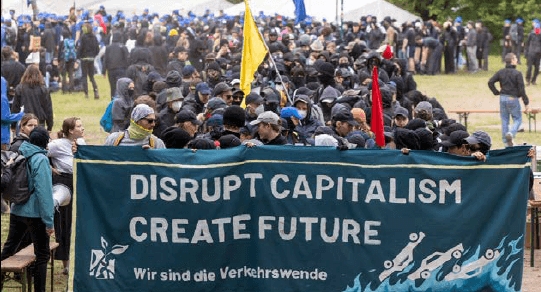 German climate protesters clashed
with police as they attempted to
break into Tesla’s factory site near
Berlin on Friday [May 10], during a
five-day demonstration against the
carmaker’s local expansion plans.
Footage on social media showed
crowds of black-clad protesters running
toward Tesla premises. German
media reported injuries among police
and protesters, as well as an unknown
number of arrests.
“Why are they not jailed for breaking
and entering?” Tesla CEO Elon Musk
said on X. He denied the protesters had
reached Tesla property. “Protesters
did not manage to break through the
fenceline. There are still 2 intact fence
lines all around.” ...
Eight hundred people participated in the protest, Lucia Mende, spokesperson
for Disrupt Tesla, told WIRED. She contradicted
the police and Musk’s claim
that the demonstrators did not reach
Tesla property. She added activists were
now on their way to a disused airfield
which Tesla is reportedly using to store
thousands of unsold cars. “They want to
prevent the expansion of the factory,”
Mende said of the protesters. ...
Tesla’s German factory, which produces
electric cars and batteries, has for
months been the target of protests by
climate activists, who call the company’s
green credentials a sham. “Companies
like Tesla are there to save the car
industry, they’re not there to save the
climate,” Esther Kamm, spokesperson
for Turn Off ...
Read full text:
German climate protesters clashed
with police as they attempted to
break into Tesla’s factory site near
Berlin on Friday [May 10], during a
five-day demonstration against the
carmaker’s local expansion plans.
Footage on social media showed
crowds of black-clad protesters running
toward Tesla premises. German
media reported injuries among police
and protesters, as well as an unknown
number of arrests.
“Why are they not jailed for breaking
and entering?” Tesla CEO Elon Musk
said on X. He denied the protesters had
reached Tesla property. “Protesters
did not manage to break through the
fenceline. There are still 2 intact fence
lines all around.” ...
Eight hundred people participated in the protest, Lucia Mende, spokesperson
for Disrupt Tesla, told WIRED. She contradicted
the police and Musk’s claim
that the demonstrators did not reach
Tesla property. She added activists were
now on their way to a disused airfield
which Tesla is reportedly using to store
thousands of unsold cars. “They want to
prevent the expansion of the factory,”
Mende said of the protesters. ...
Tesla’s German factory, which produces
electric cars and batteries, has for
months been the target of protests by
climate activists, who call the company’s
green credentials a sham. “Companies
like Tesla are there to save the car
industry, they’re not there to save the
climate,” Esther Kamm, spokesperson
for Turn Off ...
Read full text:
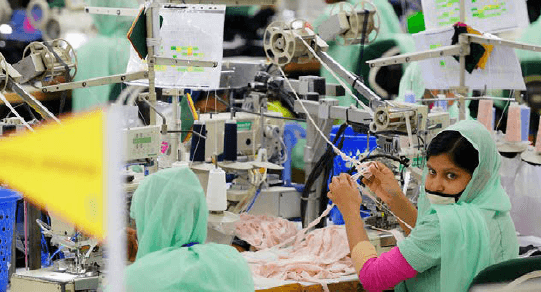 The proposed legislation, which
began in 2020, empowers regulators
to take action against companies
failing to conduct such due diligence
and, in some situations, allows victims
of corporate abuses to approach European
courts to seek justice. It applies
to companies based within the EU and
selling into it to that have more than
1,000 employees and more than €450m
(£387m) in annual turnover.
Following the European Parliament’s
vote, the law now needs final approval
by ministers of EU member states,
which is expected to take place in late
May. Today’s vote [April 24] took place
on the 11th anniversary of the tragic
collapse of the Rana Plaza building in
Bangladesh on April 24, 2013, which
killed 1,138 garment workers and injured
over 2,000 others.
Aruna Kashyap, associate director
on corporate accountability at Human
Rights Watch, said: “The 11th anniversary
of the Rana Plaza disaster is a somber
reminder of why a due diligence law
is long overdue. The European Parliament’s
vote sends a strong message
that the EU should no longer let large
corporations get away with human
rights and environmental abuses.
“The European Commission pledged
to adopt a law to hold corporations
accountable when they took office five
years ago. Ministers from EU member
states should give a final nod to the text
and pave the way for a new chapter on
corporate accountability in global supply
chains.” ...
Read full text:
The proposed legislation, which
began in 2020, empowers regulators
to take action against companies
failing to conduct such due diligence
and, in some situations, allows victims
of corporate abuses to approach European
courts to seek justice. It applies
to companies based within the EU and
selling into it to that have more than
1,000 employees and more than €450m
(£387m) in annual turnover.
Following the European Parliament’s
vote, the law now needs final approval
by ministers of EU member states,
which is expected to take place in late
May. Today’s vote [April 24] took place
on the 11th anniversary of the tragic
collapse of the Rana Plaza building in
Bangladesh on April 24, 2013, which
killed 1,138 garment workers and injured
over 2,000 others.
Aruna Kashyap, associate director
on corporate accountability at Human
Rights Watch, said: “The 11th anniversary
of the Rana Plaza disaster is a somber
reminder of why a due diligence law
is long overdue. The European Parliament’s
vote sends a strong message
that the EU should no longer let large
corporations get away with human
rights and environmental abuses.
“The European Commission pledged
to adopt a law to hold corporations
accountable when they took office five
years ago. Ministers from EU member
states should give a final nod to the text
and pave the way for a new chapter on
corporate accountability in global supply
chains.” ...
Read full text:
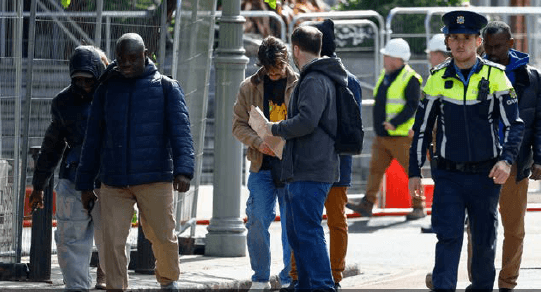 Dublin, May 1 (Reuters) - Irish
police dismantled about 200 tents
housing asylum seekers in Dublin
early on Wednesday, tackling what has
become a focal point for heated debate
around migration. Ireland is struggling
to accommodate record numbers
of refugees while facing a housing
shortage, and a so-called tent city had
sprung up near government buildings
in the capital’s central Mount Street
area over the last year.
While the young men who lived in
small tents in the city were largely
left alone, there have been protests in
smaller communities against migrants
living in hotels and hostels. Violence
erupted in Dublin in November, led
by far-right activists. The government
said that the camped-out asylum
seekers had been moved to sites south of Dublin with weather-proof tents,
showers, food and security. Prime Minister
Simon Harris said, ahead of the
move, that it was important they did
not return. “We do not live in a country
where makeshift shantytowns are allowed
to just develop,” he said.
By early morning police had loaded
the majority of those living in the camp
onto buses. The blue tarpaulin that
hung over tents for added protection
was taken down and the tents removed.
Footpaths were power hosed and the
smell of disinfectant hung in the air.
One man, speaking in broken English
and clutching two plastic bags
of belongings, said he could not go
on a bus because his wife did not
have the correct paperwork. ...
Dublin, May 1 (Reuters) - Irish
police dismantled about 200 tents
housing asylum seekers in Dublin
early on Wednesday, tackling what has
become a focal point for heated debate
around migration. Ireland is struggling
to accommodate record numbers
of refugees while facing a housing
shortage, and a so-called tent city had
sprung up near government buildings
in the capital’s central Mount Street
area over the last year.
While the young men who lived in
small tents in the city were largely
left alone, there have been protests in
smaller communities against migrants
living in hotels and hostels. Violence
erupted in Dublin in November, led
by far-right activists. The government
said that the camped-out asylum
seekers had been moved to sites south of Dublin with weather-proof tents,
showers, food and security. Prime Minister
Simon Harris said, ahead of the
move, that it was important they did
not return. “We do not live in a country
where makeshift shantytowns are allowed
to just develop,” he said.
By early morning police had loaded
the majority of those living in the camp
onto buses. The blue tarpaulin that
hung over tents for added protection
was taken down and the tents removed.
Footpaths were power hosed and the
smell of disinfectant hung in the air.
One man, speaking in broken English
and clutching two plastic bags
of belongings, said he could not go
on a bus because his wife did not
have the correct paperwork. ...
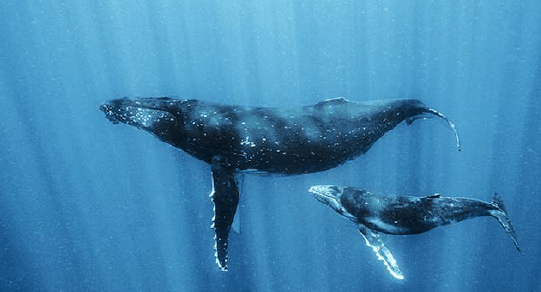 There are only around 5,000 to 15,000
blue whales left in the world. Their
populations experienced a 89-97%
decline due to commercial whaling
activities worldwide that started in the
North Atlantic in 1868. Blue whales
were primarily valued for their blubber,
transformed into oil and used in
cosmetics and soap, for the lubrication
of industrial equipment, and as lamp oil.
In 1978, the last deliberate capture of a
blue whale was recorded off Spain.
Historically, the Seychelles archipelago
was an opportunistic whaling
ground for Soviet whaling fleets en
route to and from the Antarctic. In the
waters of the northern Indian Ocean,
whalers illegally killed more than 1,200
blue whales, including 500 near the
Seychelles, between 1963 and 1966. Since then, no dedicated research had
occurred to assess the abundance of blue
whales in this region until 2020, when
I [Jeremy Kiszka] partnered with the
University of Seychelles, Oceanic Films
(UK) and my colleague, Kate Stafford, to
investigate. We carried out two expeditions
in November 2020 and 2021. After
surveying about 5,500km across the
northern Seychelles, we had a total of
five sightings of up to 10 blue whales.
After sharing our pictures with other
research groups working on blue whales
in the Indian Ocean, no “match” was
found. This means the whales we
identified in Seychelles might have been
photographed for the first time ever! ...
There are only around 5,000 to 15,000
blue whales left in the world. Their
populations experienced a 89-97%
decline due to commercial whaling
activities worldwide that started in the
North Atlantic in 1868. Blue whales
were primarily valued for their blubber,
transformed into oil and used in
cosmetics and soap, for the lubrication
of industrial equipment, and as lamp oil.
In 1978, the last deliberate capture of a
blue whale was recorded off Spain.
Historically, the Seychelles archipelago
was an opportunistic whaling
ground for Soviet whaling fleets en
route to and from the Antarctic. In the
waters of the northern Indian Ocean,
whalers illegally killed more than 1,200
blue whales, including 500 near the
Seychelles, between 1963 and 1966. Since then, no dedicated research had
occurred to assess the abundance of blue
whales in this region until 2020, when
I [Jeremy Kiszka] partnered with the
University of Seychelles, Oceanic Films
(UK) and my colleague, Kate Stafford, to
investigate. We carried out two expeditions
in November 2020 and 2021. After
surveying about 5,500km across the
northern Seychelles, we had a total of
five sightings of up to 10 blue whales.
After sharing our pictures with other
research groups working on blue whales
in the Indian Ocean, no “match” was
found. This means the whales we
identified in Seychelles might have been
photographed for the first time ever! ...
 When scientists realized that nearly
10 billion snow crabs had gone
missing from Bering Sea between 2018
to 2021, they weren’t sure where they
could have gone. After searching for
a potentially migrating population,
however, they came to a much more
unfortunate conclusion.
A new study published by National
Oceanic and Atmospheric Administration
(NOAA) researchers in Science found
that the billions of snow crabs weren’t
finding a new home —they were suffering
from what was likely the largest
mortality collapse known to the species.
Researchers have been aware of
the crabs’ disappearance for a while,
but the extent of the catastrophe and
the exact causes behind it were previously
unknown.
The NOAA team started a search for the crabs —looking north, west, and
even deep in the ocean. With no evidence
of crab migration, the researchers
determined that the creatures had
been lost to a massive mortality event.
“It’s a fishery disaster in the truest
sense of the word,” Cody Szuwalski,
lead author of the study and fishery
biologist at NOAA, told Science News.
Even though snow crabs typically live
in water temperatures no more than
2°C, they can easily handle upward of
12°C. Not only did the warmer temperature
push the crab’s caloric needs higher
—the crabs sometimes needed as much
as four times their normal caloric intake
to survive— but it also drew other fish
into the water to feed on the crabs’ food
supply. ...
When scientists realized that nearly
10 billion snow crabs had gone
missing from Bering Sea between 2018
to 2021, they weren’t sure where they
could have gone. After searching for
a potentially migrating population,
however, they came to a much more
unfortunate conclusion.
A new study published by National
Oceanic and Atmospheric Administration
(NOAA) researchers in Science found
that the billions of snow crabs weren’t
finding a new home —they were suffering
from what was likely the largest
mortality collapse known to the species.
Researchers have been aware of
the crabs’ disappearance for a while,
but the extent of the catastrophe and
the exact causes behind it were previously
unknown.
The NOAA team started a search for the crabs —looking north, west, and
even deep in the ocean. With no evidence
of crab migration, the researchers
determined that the creatures had
been lost to a massive mortality event.
“It’s a fishery disaster in the truest
sense of the word,” Cody Szuwalski,
lead author of the study and fishery
biologist at NOAA, told Science News.
Even though snow crabs typically live
in water temperatures no more than
2°C, they can easily handle upward of
12°C. Not only did the warmer temperature
push the crab’s caloric needs higher
—the crabs sometimes needed as much
as four times their normal caloric intake
to survive— but it also drew other fish
into the water to feed on the crabs’ food
supply. ...


 The original stand up weed puller
tool. Remove weeds without bending,
pulling or kneeling. With long-lasting
bamboo handle & heavy-duty steel head.
grampasweeder.com
The original stand up weed puller
tool. Remove weeds without bending,
pulling or kneeling. With long-lasting
bamboo handle & heavy-duty steel head.
grampasweeder.com
 Each one is handmade from an upcycled
wine bottle, cut open at the bottom, and
elegantly finished with copper tape.
www.uncommongoods.com
Each one is handmade from an upcycled
wine bottle, cut open at the bottom, and
elegantly finished with copper tape.
www.uncommongoods.com

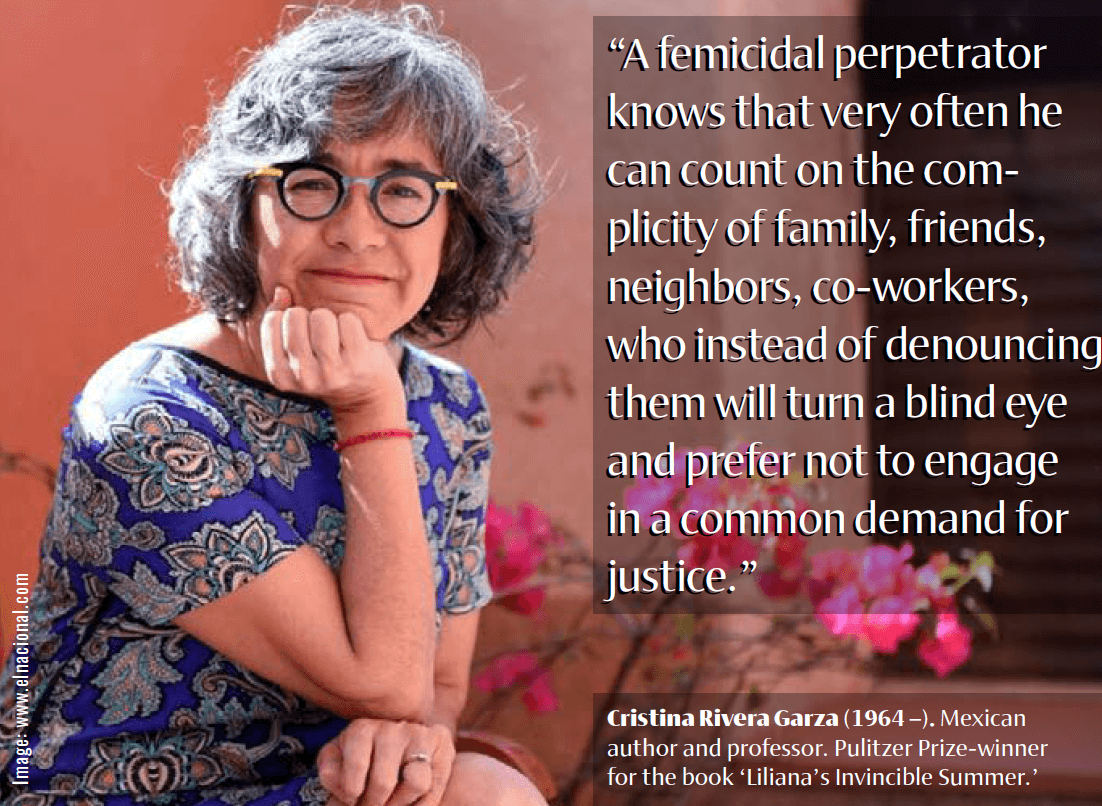
 Backpack made
of heavy-duty, water repellent material.
Fully insulated main compartment
holds three 12-ounce cans. Two exterior
mesh pockets. Fleece lined eyewear
compartment. www.carhartt.com
Backpack made
of heavy-duty, water repellent material.
Fully insulated main compartment
holds three 12-ounce cans. Two exterior
mesh pockets. Fleece lined eyewear
compartment. www.carhartt.com

 The Bachelor of Environmental Science
(BS) program helps students
develop practical skills and knowledge
required to critically evaluate environmental
problems and provide applied
solutions. The major is interdisciplinary
in nature, focusing on the underlying
natural processes relating to
the environment and understanding
and employing the scientific method.
The Bachelor of Environmental Science
program is offered online via
distance learning. After evaluating
both academic record and life experience,
AIU staff working in conjunction
with Faculty and Academic Advisors
will assist students in setting up a
custom-made program. This flexibility
to meet student needs is seldom
found in other distance learning
programs. Our online program does
not require all students to take the
same subjects/courses, use the same
books, or learning materials. Instead,
the online Bachelor of Environmental
Science curriculum specifically
addresses strengths and weaknesses
with respect to market opportunities
in the student’s major and intended
field of work. Understanding that
industry and geographic factors
should influence the content of the
curriculum instead of a standardized
one-fits-all design is the hallmark of
AIU’s unique approach to adult education.
This philosophy addresses the
dynamic and constantly changing environment
of working professionals by
helping adult students in reaching their
professional and personal goals within
the scope of the degree program.
The Bachelor of Environmental Science
(BS) program helps students
develop practical skills and knowledge
required to critically evaluate environmental
problems and provide applied
solutions. The major is interdisciplinary
in nature, focusing on the underlying
natural processes relating to
the environment and understanding
and employing the scientific method.
The Bachelor of Environmental Science
program is offered online via
distance learning. After evaluating
both academic record and life experience,
AIU staff working in conjunction
with Faculty and Academic Advisors
will assist students in setting up a
custom-made program. This flexibility
to meet student needs is seldom
found in other distance learning
programs. Our online program does
not require all students to take the
same subjects/courses, use the same
books, or learning materials. Instead,
the online Bachelor of Environmental
Science curriculum specifically
addresses strengths and weaknesses
with respect to market opportunities
in the student’s major and intended
field of work. Understanding that
industry and geographic factors
should influence the content of the
curriculum instead of a standardized
one-fits-all design is the hallmark of
AIU’s unique approach to adult education.
This philosophy addresses the
dynamic and constantly changing environment
of working professionals by
helping adult students in reaching their
professional and personal goals within
the scope of the degree program.
 Atlantic International University is accredited by the Accreditation Service for International
Schools, Colleges and Universities (ASIC). ASIC Accreditation is an internationally
renowned quality standard for colleges and universities. Visit ASIC’s Directory of Accredited
Colleges and Universities. ASIC is a member of CHEA International Quality Group
(CIQG) in the USA, an approved accreditation body by the Ministerial Department of the Home Office
in the UK, and is listed in the International Directory of the Council for Higher Education Accreditation
(CHEA). The University is based in the United States and was established by corporate charter in 1998.
Atlantic International University is accredited by the Accreditation Service for International
Schools, Colleges and Universities (ASIC). ASIC Accreditation is an internationally
renowned quality standard for colleges and universities. Visit ASIC’s Directory of Accredited
Colleges and Universities. ASIC is a member of CHEA International Quality Group
(CIQG) in the USA, an approved accreditation body by the Ministerial Department of the Home Office
in the UK, and is listed in the International Directory of the Council for Higher Education Accreditation
(CHEA). The University is based in the United States and was established by corporate charter in 1998.
 In some cases, accredited colleges
may not accept for transfer courses and degrees
completed at unaccredited colleges, and some
employers may require an accredited degree as
a basis for eligibility for employment. Potential
students should consider how the above may affect
their interests, AIU respects the unique rules and
regulations of each country and does not seek to
influence the respective authorities. In the event
that a prospective student wishes to carry out any
government review or process in regards to his
university degree, we recommend that the requirements
of such are explored in detail with the relevant
authorities by the prospective student as the
university does not intervene in such processes.
AIU students can be found in over 180 countries,
they actively participate and volunteer
in their communities as part of their academic
program and have allocated thousands of service
hours to diverse causes and initiatives. AIU
programs follow the standards commonly used by
colleges and universities in the United States with
regards to the following: academic program
structure, degree issued, transcript, and
other graduation documents.
AIU graduation documents can include
an apostille and authentication from the
US Department of State to facilitate their
use internationally.
In some cases, accredited colleges
may not accept for transfer courses and degrees
completed at unaccredited colleges, and some
employers may require an accredited degree as
a basis for eligibility for employment. Potential
students should consider how the above may affect
their interests, AIU respects the unique rules and
regulations of each country and does not seek to
influence the respective authorities. In the event
that a prospective student wishes to carry out any
government review or process in regards to his
university degree, we recommend that the requirements
of such are explored in detail with the relevant
authorities by the prospective student as the
university does not intervene in such processes.
AIU students can be found in over 180 countries,
they actively participate and volunteer
in their communities as part of their academic
program and have allocated thousands of service
hours to diverse causes and initiatives. AIU
programs follow the standards commonly used by
colleges and universities in the United States with
regards to the following: academic program
structure, degree issued, transcript, and
other graduation documents.
AIU graduation documents can include
an apostille and authentication from the
US Department of State to facilitate their
use internationally.
| Dr. Franklin Valcin Presi den t/Academic Dean |
Dr. José Mercado Chief Executive Officer Chairman of the Board of Trustees |
Ricardo González, PhD Provost |
| Dr. Ricardo Gonzalez Chief Operation Officer and MKT Director |
Linda Collazo Logistics Coordinator |
AIU Tutors Coordinators: Deborah Rodriguez Amiakhor Ejaeta Amanda Gutierrez William Mora Miriam James Admissions Coordinators: Amalia Aldrett Sandra Garcia Junko Shimizu Veronica Amuz Alba Ochoa Jenis Garcia Judith Brown Chris Soto René Cordón Dr. Anderas Rissler Academic Coordinators: Dr. Adesida Oluwafemi Dr. Emmanuel Gbagu Dr. Lucia Gorea Dr. Edgar Colon Dr. Mario Rios Freddy Frejus Dr. Nilani Ljunggren De Silva Dr. Scott Wilson Dr. Mohammad Shaidul Islam |
| Dr. Miriam Garibaldi Vice provost for Research |
Carolina Valdes Human Resource Coordinator |
|
| Dr. Ofelia Miller Director of AIU |
Carlos Aponte Teleco mmunications Coordinator |
|
| Clara Margalef Director of Special Projects of AIU |
David Jung Corporate/Legal Counsel |
|
| Juan Pablo Moreno Director of Operations |
Bruce Kim Advisor/Consultant |
|
| Paula Viera Director of Intelligence Systems |
Thomas Kim Corporate/ Accounting Counsel |
|
| Felipe Gomez Design Director / IT Supervisor |
Maricela Esparza Administrative Coordinator |
|
| Kevin Moll Web Designer |
Chris Benjamin IT and Hosting Support |
|
| Daritza Ysla IT Coordinator |
Maria Pastrana Accounting Coordinator |
|
| Daritza Ysla IT Coordinator |
Roberto Aldrett Communications Coordinator |
|
| Nadeem Awan Chief Programming Officer |
Giovanni Castillo IT Support |
|
| Dr. Edward Lambert Academic Director |
Antonella Fonseca Quality Control & Data Analysis |
|
| Dr. Ariadna Romero Advisor Coordinator |
Adrián Varela Graphic Design |
|
| Jhanzaib Awan Senior Programmer |
Vanesa D’Angelo Content Writer |
|
| Leonardo Salas Human Resource Manager |
Jaime Rotlewicz Dean of Admissions |
|
| Benjamin Joseph IT and Technology Support |
Michael Phillips Registrar’s Office |
|
| Rosie Perez Finance Coordinator |
||
 The School of Business and Economics
allows aspiring and practicing
professionals, managers, and entrepreneurs
in the private and public sectors
to complete a self paced distance
learning degree program of the highest
academic standard.
The ultimate goal is to empower
learners and help them take advantage
of the enormous array of resources
from the world environment in order
to eliminate the current continuum of
poverty and limitations.
Degree programs are designed for
those students whose professional experience has been in business,
marketing, administration, economics,
finance and management.
The School of Business and Economics
allows aspiring and practicing
professionals, managers, and entrepreneurs
in the private and public sectors
to complete a self paced distance
learning degree program of the highest
academic standard.
The ultimate goal is to empower
learners and help them take advantage
of the enormous array of resources
from the world environment in order
to eliminate the current continuum of
poverty and limitations.
Degree programs are designed for
those students whose professional experience has been in business,
marketing, administration, economics,
finance and management.
 The School of Social and Human Studies
is focused on to the development of
studies which instill a core commitment
to building a society based on social and
economic justice and enhancing opportunities
for human well being.
The founding principles lie on the
basic right of education as outlined
in the Declaration of Human Rights.
We instill in our students a sense of
confidence and self reliance in their
ability to access the vast opportunities
available through information channels,
the world wide web, private, public,
nonprofit, and nongovernmental organizations in an ever expanding
global community.
Degree programs are aimed towards
those whose professional life has been
related to social and human behavior,
with the arts, or with cultural studies.
The School of Social and Human Studies
is focused on to the development of
studies which instill a core commitment
to building a society based on social and
economic justice and enhancing opportunities
for human well being.
The founding principles lie on the
basic right of education as outlined
in the Declaration of Human Rights.
We instill in our students a sense of
confidence and self reliance in their
ability to access the vast opportunities
available through information channels,
the world wide web, private, public,
nonprofit, and nongovernmental organizations in an ever expanding
global community.
Degree programs are aimed towards
those whose professional life has been
related to social and human behavior,
with the arts, or with cultural studies.
 The School of Science and Engineering
seeks to provide dynamic, integrated,
and challenging degree programs
designed for those whose experience
is in industrial research, scientific production,
engineering and the general
sciences. Our system for research and
education will keep us apace with the
twenty-first century reach scientific
advance in an environmentally and
ecologically responsible manner to allow
for the sustainability of the human
population. We will foster among our
students a demand for ethical behavior,
an appreciation for diversity, an understanding
of scientific investigation, knowledge of design innovation, a
critical appreciation for the importance
of technology and technological change
for the advancement of humanity.
The School of Science and Engineering
seeks to provide dynamic, integrated,
and challenging degree programs
designed for those whose experience
is in industrial research, scientific production,
engineering and the general
sciences. Our system for research and
education will keep us apace with the
twenty-first century reach scientific
advance in an environmentally and
ecologically responsible manner to allow
for the sustainability of the human
population. We will foster among our
students a demand for ethical behavior,
an appreciation for diversity, an understanding
of scientific investigation, knowledge of design innovation, a
critical appreciation for the importance
of technology and technological change
for the advancement of humanity.
 With access to a global catalog created and maintained collectively by more than
9,000 participating institutions, AIU students have secured excellent research
tools for their study programs.
With access to a global catalog created and maintained collectively by more than
9,000 participating institutions, AIU students have secured excellent research
tools for their study programs.